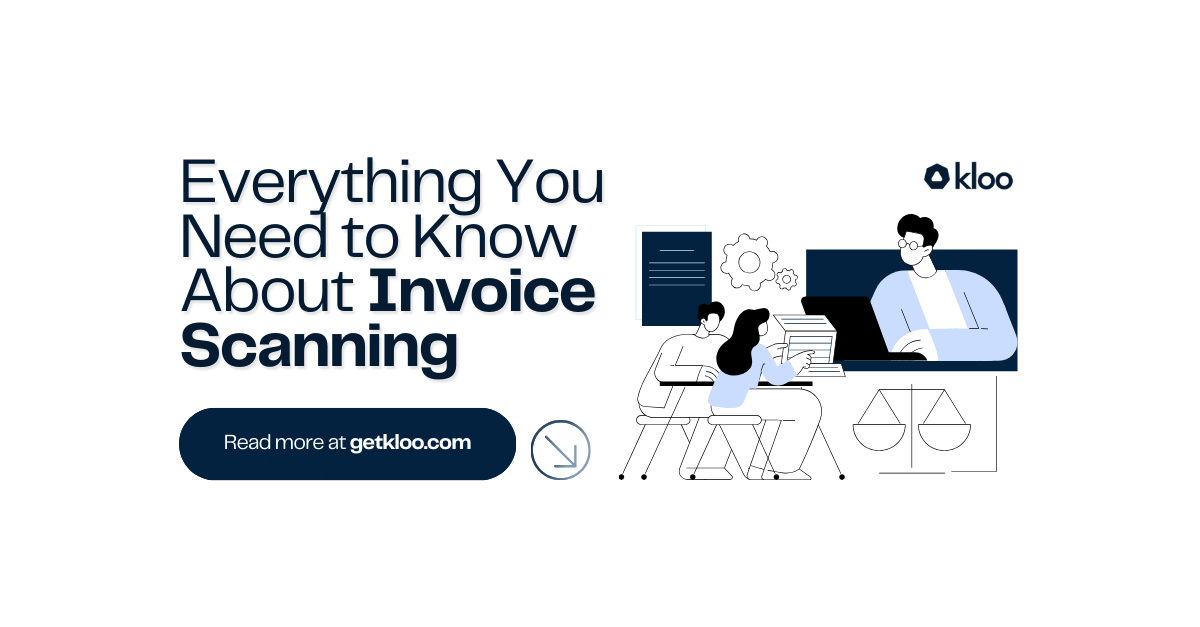Invoice Scanning Software: Everything You Need To Know
Efficiency and accuracy are crucial for invoice management operations and the wider realm of Accounts Payable. As businesses aim to optimise their operations, understanding invoice scanning software—also known as invoice capture or OCR (Optical Character Recognition) technology—becomes essential. This guide covers the intricacies of invoice scanning, its workings, benefits, common challenges, and effective solutions.
What is Invoice Scanning Software?
Invoice scanning software refers to the technology that extracts data from invoices, typically in digital formats like PDFs. With the decline of physical invoices and the rise of e-invoicing due to regulatory requirements, the focus has shifted towards capturing data from digital files. This software ensures that all pertinent information from invoices is accurately recorded for further processing.
The Benefits of Invoice Scanning
Manual data entry is laborious and prone to mistakes. Invoice scanning software automates this process, reducing errors and freeing up valuable time for employees to engage in more strategic tasks. Key benefits include:
- Enhanced Accuracy: Automation reduces human error, ensuring data is captured correctly and consistently.
- Increased Efficiency: Speeds up invoice processing, facilitating quicker payments and better cash flow management.
- Cost Savings: Reduces the need for manual data entry, cutting down on labour costs.
- Improved Compliance: Ensures accurate data capture and storage, aiding in regulatory compliance and creating robust audit trails.
How Invoice Scanning Works
Invoice scanning software leverages OCR technology combined with machine learning. OCR converts textual data from invoices into digital text, while machine learning analyses the document structure and identifies patterns. This enables the software to differentiate between various data types, such as invoice numbers and company numbers, and populate the appropriate fields in an accounts payable system and ERP. In this way, invoice scanning solutions transform an unstructured document into standardised structured data.
Common Issues with Invoice Scanning Solutions
1. Multi-Step Capture Initiation
Many solutions offer invoice scanning automation, however initiating this scan still requires several manual steps. For example, it may still require you to open emails from suppliers, download invoice documents, log into another platform, and upload the document for scanning. While still faster and more accurate that manual data entry, there is still scope here for invoices to fall through the cracks.
Solution: Adopt solutions with automatic uploads. For instance, Kloo’s Smart Invoice Inbox allows suppliers to send invoices directly to a unique email address, where the AI identifies the document type and extracts and uploads the information automatically. This direct pipeline saves time and prevents invoices from falling through the cracks.
2. Integration with Subsequent Invoice Processing
Another common issue is the lack of integration with further processing steps. The most effective data capture solutions should also automate the following processes, creating a seamless, fully automated workflow.
Solution: Kloo’s Smart Invoice Inbox not only extracts data but also performs fraud checks, uploads structured data to both Kloo and your ERP, conducts 2- or 3-way matching, and assigns the invoice to an approval workflow if necessary. This end-to-end automation ensures seamless processing from invoice receipt to final approval without manual intervention.
OCR in Action: Kloo’s Smart Invoice Inbox
Kloo’s Smart Invoice Inbox exemplifies the integration of OCR into a broader automated process. It captures data from invoices, formats it according to ERP fields, checks for fraud, uploads it to both Kloo and ERP systems, and manages the approval workflow. This comprehensive approach significantly reduces manual data entry, mitigates fraud risks, and ensures quick, accurate invoice processing.
The Bottom Line
Invoice scanning software, powered by OCR and AI, transforms invoice processing by automating data extraction and validation. This technology boosts efficiency while minimising errors and fraud, making it indispensable for modern businesses. By integrating OCR into smart systems like Kloo’s Smart Invoice Inbox, companies can streamline their operations, handle large invoice volumes with ease, and maintain a competitive edge in an increasingly digital world. As e-invoicing becomes the norm, adopting advanced invoice scanning solutions will be essential for maintaining operational efficiency and accuracy.
Let's get started

